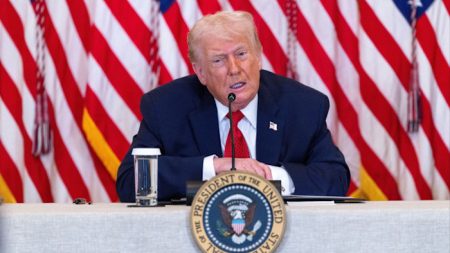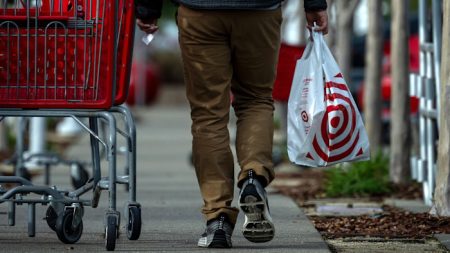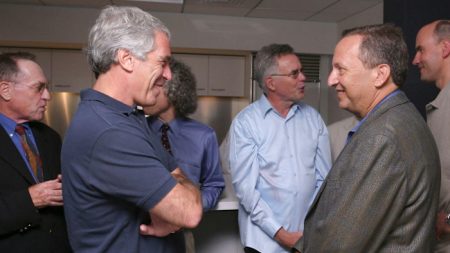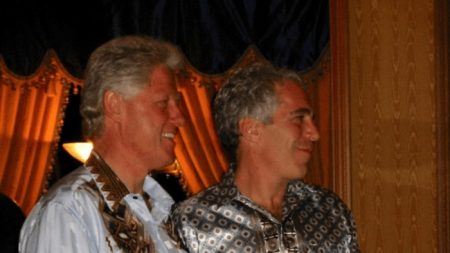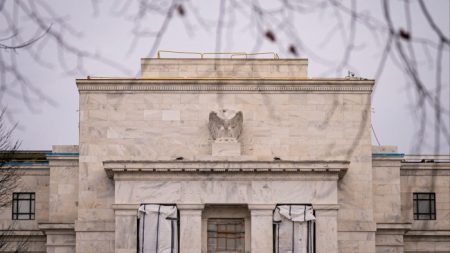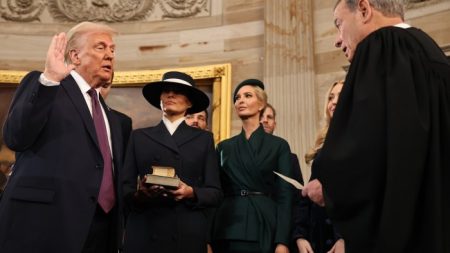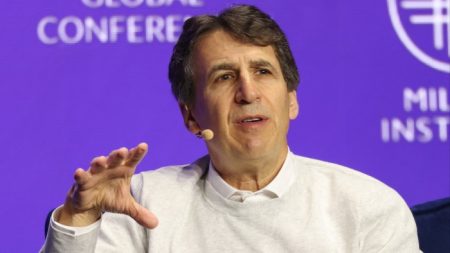Stay informed with free updates
Simply sign up to the German politics myFT Digest — delivered directly to your inbox.
German foreign minister Annalena Baerbock has launched a thinly veiled attack on Chancellor Olaf Scholz for blocking additional military aid for Ukraine, accusing him of jeopardising European peace to “quickly win a few votes” as elections loom in the EU’s largest country.
Baerbock, whose Green party is pitching itself as the most robust supporter of Kyiv in campaigning for next month’s federal election, said it “really pains me” that Scholz was refusing to approve an extra €3bn in support to buy weapons.
Without naming Scholz, Baerbock said she was upset that, for some politicians, the question of “how I can quickly win a few votes in a general election is more important than the responsibility to really secure Europe’s peace and freedom”.
She told Politico: “Responsible politics does not mean going whichever way the wind blows, and perhaps changing direction during an election campaign.”
Support for Ukraine against Russian aggression has become a divisive campaign issue ahead of the vote in Germany on February 23, as European nations seek to step up their support for Kyiv amid fears that Donald Trump will scale back US aid after his inauguration as US president next week.
On Thursday, Keir Starmer made his first visit as UK prime minister to Ukraine to see President Volodymyr Zelenskyy. Starmer, who has drawn criticism for being slow to visit Kyiv compared with previous Conservative PMs, promised that Britain would play its “full part” in guaranteeing the country’s security.
Germany is the second-biggest donor of military aid to Ukraine after the US. Baerbock and defence minister Boris Pistorius, who is from Scholz’s Social Democrats (SDP), have been pushing for extra funds to buy more military equipment to help Ukraine defend itself against Russia, which invaded its neighbour nearly three years ago.
The additional money, which would come on top of €4bn already earmarked for 2025 in a provisional budget, would be used for purchases including three new Iris-T anti-aircraft batteries as well as air defence missiles and artillery shells.
But Scholz, who has sought to woo voters who harbour suspicions about the Nato military alliance and are fearful of Germany being dragged into a direct conflict with Russian President Vladimir Putin, has portrayed himself as the more cautious and prudent figure towards Moscow.
The chancellor has said he will approve the money only if it is funded by temporarily suspending the “debt brake” that places strict limits on government borrowing. “Otherwise the money is not there,” he said on Wednesday.
The chancellor, who has struggled to lift support for his party above 16 per cent, has warned voters that the fiscally hawkish Christian Democrats (CDU), who are leading the polls, will fund support for Ukraine by making deep spending cuts to social welfare.
The CDU has signalled that it will be willing to support a new Ukraine package but not if it means issuing more debt.
Guntram Wolff, a fellow at Brussels think-tank Bruegel, said the funding of the package was “not so trivial”. The 2025 budget had not been passed due to the collapse of Scholz’s three-way coalition after he fired his Liberal finance minister, leaving a minority government with the SPD and Greens.
The impasse could be resolved with a parliamentary vote before the elections, but Wolff said the chancellor was reluctant to hold it because it would be too divisive for the SPD.
“Scholz is deliberately ambiguous about his Ukraine support to speak to those in his party who are sceptical about sending more military weapons,” he said. “These people are very powerful and it makes sense politically to keep them on board.”
The chancellor, who is also seeking to avoid losing votes to the leftwing nationalist, pro-Russia Sahra Wagenknecht Alliance (BSW), has depicted election frontrunner Friedrich Merz, leader of the CDU, and Robert Habeck, the Greens’ candidate for chancellor, as dangerous “hotheads”.
He has refused to supply long-range Taurus missiles to Kyiv, citing fears of escalation with Russia.
Merz had cast himself as a more committed supporter of Kyiv and a more reliable partner for western allies than Scholz.
But he has recently toned down his language on the conflict and muffled loud calls to supply Taurus missiles as he faces increasing pressure from the pro-Russia Alternative for Germany (AfD). The far-right, anti-immigration party is second in the polls with about 20 per cent — roughly 10 points behind the CDU.
Read the full article here






